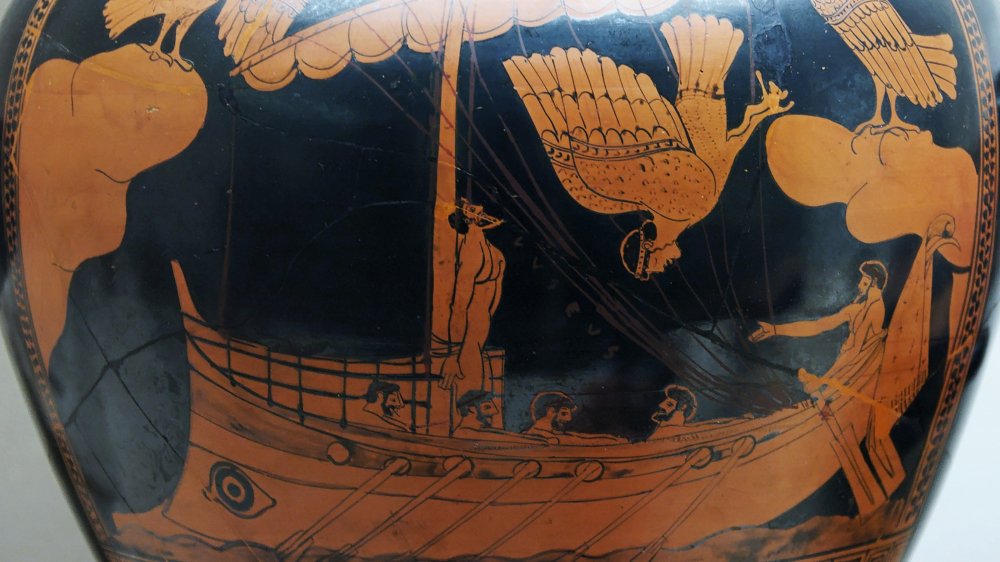Sirens Might Actually Have Existed. Here's Why
"Of course!" you're thinking. "Sirens have existed for a long time. They're that noise that first responder vehicles make when they're, well, responding." And on this point, gentle reader, you are absolutely correct. Language is entertaining. The usage at hand comes to us from Ancient Greek myth — Sirens lured sailors to their deaths. (The sailors' deaths, not the Sirens'.) More specifically, the legend of the Sirens comes to us from the writings of Homer and his epic The Odyssey, writes Ancient Origins, chronicling the adventures and travels of Odysseus (which the Ancient Romans, and lots of later Italian sword-and-sandal movies, turned into Ulysses), trying to get home after fighting in the Trojan War. Homer is thought to have crafted his version of Road to Ithaca around the Eighth Century BCE. In a nutshell: A sailor who hears the song of the Sirens cannot resist the call and lands on their island, where he perishes.
One of the incidents in The Odyssey involves Odysseus and his compatriots sailing along, minding their own business, when they encounter The Sirens. Sometimes as the story gets re-told (and it does, repeatedly) the Sirens are rather like mermaids — beautiful, seductive, possibly damp. Odysseus has been warned of the danger and stops up his men's ears so they can't hear and will proceed apace, while he's bound to the boat's mast — he'll hear the song, but won't be able to respond, try though he might.
Odysseus resisted the Sirens' song of knowledge
A recent translation of The Odyssey by University of Pennsylvania classicist Emily Wilson re-writes that image. The Sirens (sometimes relayed as "Seirenes," because this isn't confusing enough) were actually half-woman, half-bird — "bird-women," as The Audubon Society succinctly phrases it. Homer doesn't give a physical description, but contemporaneous art does, says Wilson — a beautiful human face crowning the body (with talons) of a bird. Definitely not mermaids, as Knowledge Nut reinforces.
Some sources place the Sirens' number at two, others at three, with parentage by Phorcys (one of the sea gods) or Achelous (a river god) and an unnamed muse, according to Encyclopedia Britannica. The song of the Sirens wasn't just seductive; rather, the song "promised knowledge of all things." The Ancient History Encyclopedia adds that Jason and his Argonauts also encountered the Sirens, and also resisted — by drowning out their song with one of their own. A further wrinkle in the story: "the Sirens were fated to die if a mortal ever resisted their beckoning." So if you've never met a Siren, you have Odysseus to blame. Or possibly Jason. (Check with Homer.)

